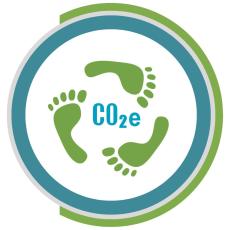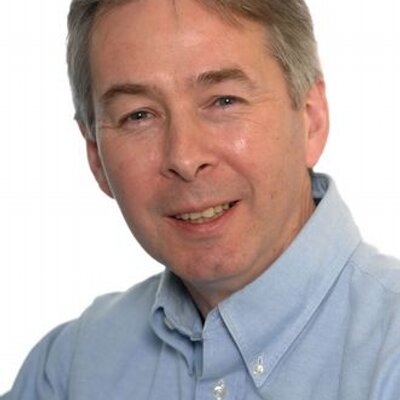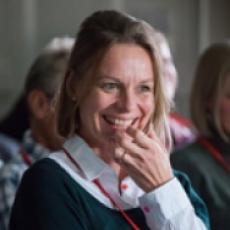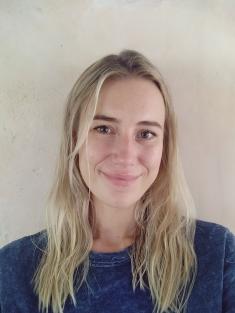
This carbon footprinting course is for health professionals and quality improvement leads. It offers an understanding of what a carbon footprint is, how it can be used in the health sector's endeavour to go net zero and how it is measured.
- Workshop *FULLY BOOKED*: Thursday 7 November 2024 [9.00-13.00 GMT]
- Self-study period opens: 10 October 2024
- Self-study period opens: 10 October 2024
If you have booked on a course click here for access.
Pricing structure: £160 - £350 + VAT
Course description
In order for the NHS to reduce its greenhouse gas emissions to net zero by 2040, and net zero within its supply chain by 2045, carbon needs to become an additional currency alongside money, understood by all working in the health system. Though we know the NHS’s carbon footprint overall, the carbon impact of specific projects and operations (service changes, quality improvement projects or procurement of new products) are not routinely measured. This carbon footprinting course will help health professionals, quality improvement leads and medical students to gain an understanding of what a carbon footprint is, how it can be used in the NHS’s endeavor to go net zero and how it is measured. You will also learn about different carbon footprinting studies in healthcare and what can be learned from them.
This course is endorsed by 
Course objectives:
- Recognise the interconnectedness of health, healthcare and climate change
- Understand what a carbon footprint is, why it is important to measure it, and how the two main carbon footprinting methodologies differ
- Identify the steps in estimating a carbon footprint of a quality improvement project or clinical pathway
- Find and use carbon conversion factors
- Recognise good practice in carbon footprinting studies in healthcare
- Practice carbon footprinting on a small/simple quality improvement project
Course timeline:
Part 1: Self study online
All course content is presented in the online module. You will need about 4-6 hours to go through this round-up of theory and practice. A discussion forum allows you to meet fellow participants and get to know each other's areas of interest and work. The self-study module opens 4 weeks before, and remains available to you for 6 months after, the workshop. You can see a table of contents for the self study materials here.
“As someone who has not been exposed to the concept of carbon footprinting and what it entails before, the pre-workshop self study helped me gain the knowledge required for the workshop. The information was comprehensive and applicable to my context..." - Course participant, July 2023
Part 2: Live workshop online
This 4 hour virtual workshop consolidates your understanding of the course materials. Small group discussions with CSH experts and colleagues from around the world allow further exploration of carbon footprinting methodologies and how to apply them in the healthcare context. In breakout groups, you will have the opportunity to share your own project whose carbon footprint you would like to measure and discuss your approach to it.
“The discussion with experts and being able to hear other peoples ideas/projects was really useful. It was really beneficial for the progress of my own project” - Course participant July 2023
Part 3: Work in Progress presentations
We offer the opportunity to meet again as a group a month or so after the Workshop for a two-hour session to discuss how projects have progressed. You are invited to present what you've done so far, answer questions and take feedback from colleagues and facilitators.
Pricing Structure

Book here
Book a course with peace of mind: We realise that healthcare workers may have to change their plans at short notice. If you are unable to attend a workshop, we can offer you a workshop at a later date for no charge. We can also offer a refund as long as you cancel before the course opens for self-study, which is 4 weeks before the workshop. There will be an admin fee of £30 for refunds.
Facilitators
 Rob Lillywhite, Assistant Professor, Department of Life Sciences, Warwick University
Rob Lillywhite, Assistant Professor, Department of Life Sciences, Warwick University
Rob's principal interest is systems sustainability and his research programme focuses on agriculture/food and healthcare. His work uses environmental accounting techniques (life cycle assessment, footprinting, mass balances) to examine the trade-offs and impacts that occur within systems.
 Ingeborg Steinbach, Carbon Modelling Lead, Centre for Sustainable Healthcare
Ingeborg Steinbach, Carbon Modelling Lead, Centre for Sustainable Healthcare
Ingeborg supports healthcare organisations and professionals to embed sustainability in day to day practice. Her focus at CSH is the analysis of the economic, environmental and social impact of healthcare organisations, services and ward-based quality improvement projects. She has been involved in the development of the global Eyefficiency tool, which looks at the productivity and financial and environmental impact of cataract surgery.
 Rosie Hillson, Carbon Modelling Assistant
Rosie Hillson, Carbon Modelling Assistant
Rosie Hillson joined CSH as the Carbon Modelling Assistant at the beginning of May 2021. Her work focusses on calculating the carbon impacts of healthcare organisations, clinical pathways, and medical equipment.

Dr Becca Elson, Sustainability Fellow in Anaesthetics/ ICU 2022/2023
Becca is the Clinical Sustainability Lead at East Suffolk and North Essex Foundation Trust having been a fellow at CSH from 2022-23. She is passionate about delivering more sustainable healthcare to improve the long-term health of patients and the planet. She has a particular interest in the carbon footprint of anaesthesia and how we can improve our practice in theatres and ICU to minimise healthcare’s impact on the environment.


